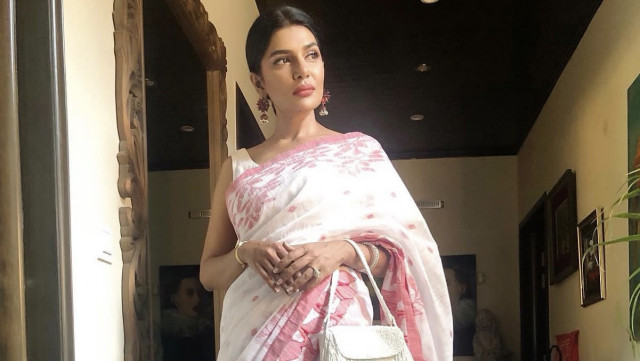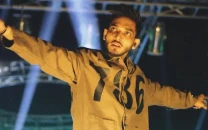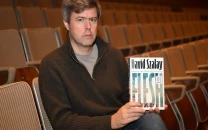When people speak up about sexual abuse ordeals, listen to them: Iffat Omar on #MeToo
Actor recently sat down with Shehzad Ghias to talk about her views and journey through the field of acting

Former model and actor Iffat Omar recently appeared as a guest on comedian Shehzad Ghias Shaikh’s podcast titled The Pakistan Experience, during which she talked about her experience of working in the media industry, as well as her views regarding Pakistani politics and feminism.
One of the most important points discussed during the one-and-a-half-hour-long episode was the fact that Urdu as a language is and always has been considered superior to all the other languages spoken in Pakistan. The Berukhi actor shared her experience of working as an actor in Karachi and interacting with certain ‘elitist crowd(s)’ who not only put her down for her lack of fluency in English but also looked down on her for her Punjabi accent and criticised her Urdu-speaking skills on set.
“The elitist crowd would look down upon you and say, ‘This person doesn’t know English’. We were made to feel complexed about our English-speaking skills, and then after that, we were made to feel complexed about our Urdu as well,” claimed Iffat on the topic of how professionals in the media industry tended to treat people as less than if their spoken English and Urdu was not good.
“I was called panju on set,” revealed the Haiwan actor, stating that the term was most definitely used in a ‘derogatory’ way by her colleagues in an attempt to diminish her and humiliate her for her Punjabi identity and accent and her non-exceptional Urdu-language skills.
“Being from Punjab, of course, we speak in a Punjabi accent,” stated the Mohabbat Aag Si actor while sharing how people would often interject themselves in her speech and try to school her on how certain words were supposed to be pronounced.
However, despite the criticism she faced because of her Punjabi accent and lack of fluency in English, the Aye Musht-e-Khaak star believes that she was still fortunate enough to have gotten many work opportunities and built her career to the point where it is now.
“But still, I must say I was lucky. Perhaps, there were fewer people, which is why I got a lot of chances, and I worked a lot,” admitted Iffat on the subject that she still managed to have a prolific acting career in spite of the dismissive attitudes and discriminatory behaviour she encountered along the way.
Speaking about her experience of working in the media and her habit of speaking while most of her colleagues choose to remain silent, Iffat said, “Nobody supports each other. People who have the power to take a cause forward, they show restraint.” The actor shared this opinion in relation to how even the most progressive actors and media professionals almost never speak out in support of their peers whenever a case of mistreatment on set or content censure becomes public.
The actor and comedian also briefly talked about the #MeToo Movement and how Iffat has openly expressed her support for Meesha Shafi in her sexual harassment lawsuit against Ali Zafar. While on the topic, the London Nahi Jaungi actor stated that it is difficult for anyone to share their traumatic experiences publicly, and she urged people to listen to and support survivors when they come forward with their stories.
“I understand. A lot of young men and women can’t speak up, but when they do, listen to them. That is the only way to put an end to this [harassment].”



















COMMENTS
Comments are moderated and generally will be posted if they are on-topic and not abusive.
For more information, please see our Comments FAQ